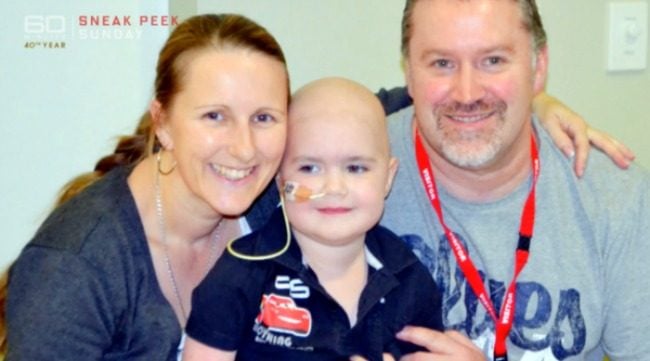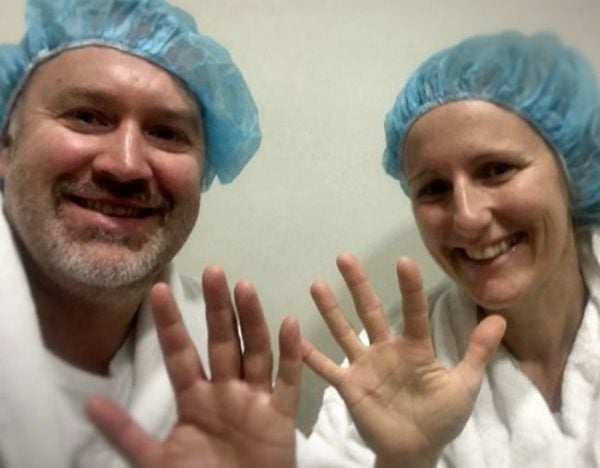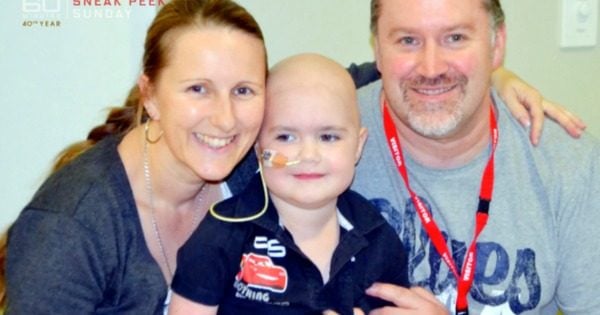
If you’re here to read about Olivia and Andrew Densley, the ‘selfish’ parents who ‘genetically engineered’ a baby for the sole purpose of pilfering its body to save the life of its older sibling, move along, because that’s an over-simplification of the issue.
For me, the real issue of their tale is that parenting is full of brutal calls for which nothing can prepare you, and you can never know what you would do in the exact same situation.
The Densleys, from Melbourne, shared their story on 60 Minutes last night, describing how the illness Wiskott-Aldrich Syndrome has affected their family. The disease has a strong genetic component, and two out of the couple’s six children have been diagnosed with it. Luckily, Cooper, who was four when he was diagnosed, was able to receive life-saving bone marrow from his younger sibling.
But soon after that, the Densleys fell pregnant with their fifth child, Fletcher. Dashing their hopes, they discovered when he was also diagnosed with the illness that none of his siblings was a donor match.
And so, the Densleys made a decision: to have a sixth child, via IVF, that would be a bone marrow match. Yes, pretty much a ‘baby with bone marrow benefits’.
The Densleys admited that they were in a terrible position, agonising about their options, and it almost broke them. But ultimately they made a tough call to go ahead with a planned sixth child who would be a match.




Top Comments
As someone elsewhere said, 'why are women ignoring the rights of this baby girl? I am shocked at the blatant disregard of a little girl's body by fellow women. So much for feminism! I don't understand this mindset. I don't think it is judgement to say what is basic common sense. That a baby shouldn't be designed just to have their body autonomy removed and be a forced donor. I don't think it is judgement to say every human being should have rights to their own body. I think that is common sense. Sometimes some things require judgement. What do you think about a little girl being born purely to be exploited and have her body autonomy taken away from her?!? What sort of society are we, if we DON'T judge that form of exploitation? Just as forced incubation/not allowed abortions is wrong, designing a spare part baby just to remove marrow/organs from them is wrong, too. Why aren't supposed feminists seeing that angle?
I seem to remember there being several legal cases where the donor child refused to undergo another procedure to keep their sibling alive.'
It feels like the baby girl is a commodity, something that can be designed (or aborted based on gender, as they do in other countries) to steal her parts from. Without her consent. She is a human being. Not a spare part back order. Why don't people look at it as a human autonomy vs exploitation angle? What about the human dignity and right of the girl to not have her body harvested from? At what point does the rights of this little girl born to be spare parts, at what point does her rights to her body autonomy become at least on level with the rights of the sick boy to live? Where is the ethics in designing a baby girl to lose autonomy of her body before she is even born? If they both have rights, which one has more rights? In the eyes of society and also in the eyes of the law?